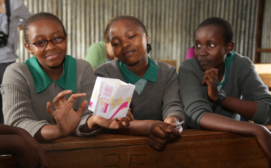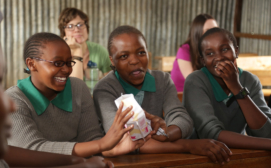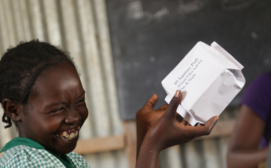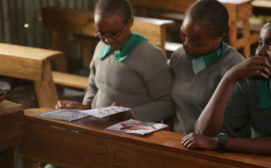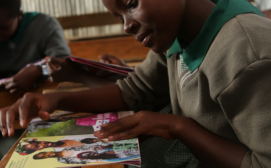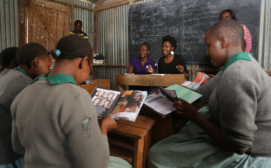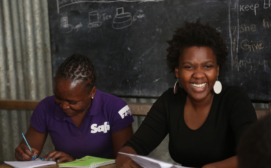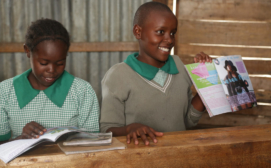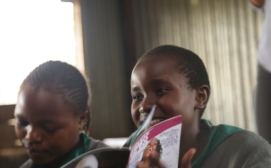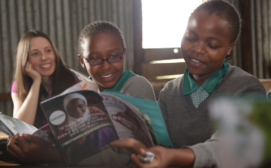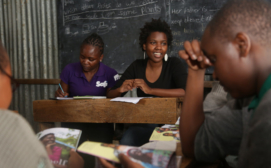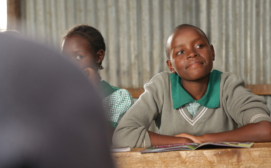Project Lead(s): Megan Mukuria
Menstrual health is central to each woman’s ability to lead lives of dignity and well-being in every part of the world. Yet, lack of access to affordable feminine hygiene products is a widely overlooked issue, which has a profound and cascading negative impact on the health, education and productivity of millions of girls and women, especially in emerging economies.
In East Africa, four in five women do not have regular access to sanitary pads or related reproductive health education. In a region where over 40% of females are under the age of 15, this is a rapidly escalating problem. A school girl without pads can miss up to six weeks of schooling every year and be inattentive in class, increasing her likelihood of dropping out and harming her chances to become a full and productive part of society. In later life, many women lose valuable work hours and thus incremental income because they cannot afford pads. This perpetuates the cycle of poverty.
Many women and girls without access to sanitary pads are forced to repeatedly use the same unsterilized cloth during menstruation, which they are often unable to dry fully, or they resort to other ineffective and unhygienic alternatives, such as newspaper, rags of cloth, bark, ashes, banana leaves or hay. All too often, these alternatives lead to short- and long-term health risks, such as reproductive tract infections which, when untreated, have negative long-term consequences, such as an increased chance of getting STDs or HIV due to immunosuppression, or high-risk pregnancies and births.
Adolescent girls, in particular, often lack relevant reproductive and menstrual health information needed to answer questions and make informed decisions. Across East Africa, there is no system to deliver critical and accurate health information, inside or outside of school, in a scalable, standardized and comprehensive way. Cultural taboos and discomfort often get in the way of in-person adolescent health education programs.
ZanaAfrica Group, a hybrid social enterprise based in Nairobi, Kenya, solves this problem through incorporating fun, interactive comics in pad packages for girls. Tested for behaviour change and health outcomes, all products are developed with girls using human-centered design. In this way they meet the demand for affordable, accessible and aspirational sanitary pad products, along with menstrual health education for girls.
With a Phase II Grand Challenges Exploration grant, co-funded between Grand Challenges Canada and the Bill & Melinda Gates Foundation, the company achieved proof of concept.
ZanaAfrica has secured a major investment catalyzed by Grand Challenges Canada (which is funded by the Government of Canada) to expand women and girls’ access to safe, affordable sanitary pads, and related health education.
ZanaAfrica’s first investment capital, totaling CDN $2.4 million (US $1.9 million), places them in a small pool of social enterprises that are successfully transitioning from proof-of-concept grants to investment. A $1 million loan provided by Grand Challenges Canada is being matched by a blend of investments and donations from the private sector, including TripAdvisor and Stewardship Foundation, with $400,000 secured via foundations and another $1 million anticipated.
Government of Canada funds come from a $10 million strategic partnership between Grand Challenges Canada and the Department of Foreign Affairs, Trade and Development Canada (DFATD) to accelerate the scale-up of highly promising innovations that improve health in the developing world. Selected innovators also access technical and business support, along with other resources to accelerate their growth.
This new funding will allow ZanaAfrica to scale up the production of sanitary pads, drive sales growth, and integrate impact evaluation in education and health into its delivery channels. The company is on track to reach 150,000 beneficiaries through its pads and underwear sales by the end of 2016.

